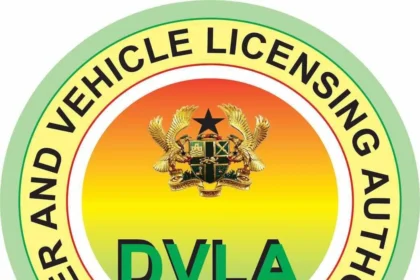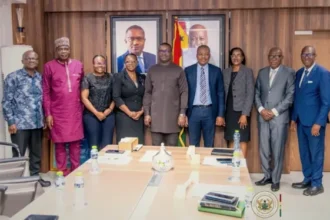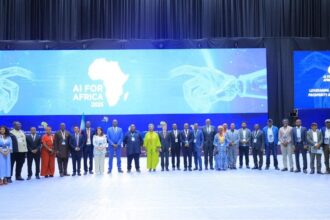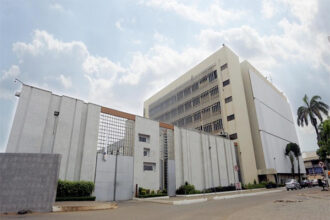Experts and civil society groups are calling for independent oversight of the Ghana Gold Expo’s GoldBod responsible sourcing program, which is putting more pressure on Ghana’s booming gold export sector.
The demands come at a time when people are more worried that small-scale gold purchases that aren’t regulated are leading to illegal mining, which is known as “galamsey” and has terrible effects on the environment and society.
GoldBod is a project started by the Ghana Gold Expo Secretariat to encourage ethical gold sourcing from artisanal and small-scale miners (ASM). People have praised it for its ambition.
But critics say it doesn’t have the openness, responsibility, and independent oversight needed to make sure it really stops gold that was illegally or harmfully mined from getting into global supply chains.
Denis Gyeyir, a policy analyst at the Natural Resource Governance Institute (NRGI), said that the GoldBod framework might not live up to its promise if there isn’t an independent way to keep an eye on it.
He said, “There is a chance that GoldBod could make gold from sources that aren’t trustworthy, like sites that help with illegal mining or land degradation.” Gyeyir suggests making a group with people from different groups that can keep an eye on things, like Ghana’s Public Interest and Accountability Committee (PIAC), which keeps an eye on how the country uses its oil money.
The rise in Ghana’s gold production, especially from the small-scale sector, which now makes up more than 40% of the country’s total gold output, is at the center of the debate. This growth has led to more money coming in from foreign exchange, but it has also led to more illegal mining, forest destruction, and river pollution.
GoldBod’s goal is to make ASM operations more official by checking the source of gold and the standards for production. But the fact that there is no legal support or third-party auditing is a red flag. Fredrick Addai Kwarteng, a researcher on mining governance, said,
“There is no law that requires compliance with GoldBod criteria, and there is no public way to check who is compliant.”
Community activists and environmental groups are also asking for stronger protections. Many people say that well-meaning platforms like GoldBod could be used by people who want to “greenwash” illegal gold if the government doesn’t make environmental and licensing rules stricter.
Ghana is trying to become the center of ethical gold sourcing in Africa, and this is when the calls for oversight come. The annual Ghana Gold Expo took place in Takoradi, where industry leaders, regulators, and civil society came together to promote responsible mining. Still, people say that the flashy conferences need to be backed up by real policy action.
“The gold sector needs independent eyes watching,” said Gyeyir. “Without it, we risk turning a blind eye to the very abuses we claim to be solving.”









